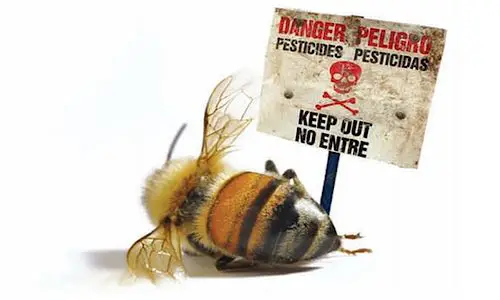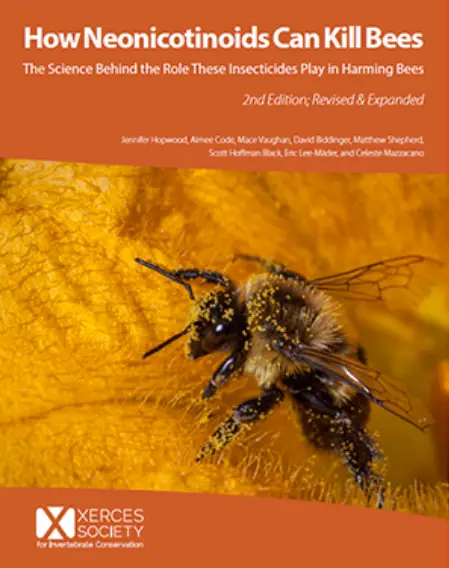
Activists, government officials, organic advocates and everyday people have expressed concern over neonicotinoids over the past decade, but bee deaths are still a serious problem with no end in sight.
Neonicotinoids are pesticides that have been coated with a thick outer layer of toxic, synthetic pesticide chemicals, and are found on seeds dispersed throughout 150 million acres of United States farmland each year.
Mostly produced by Bayer and Monsanto, three varieties of these seeds were banned by the European Union in 2013 because of their link to widespread bee deaths.
According to the Xerxes Society, an Invertebrate Conservation organization, this class of chemical-treated seeds kills honey bees and other native bees on contact, and can remain in the soil for six years or more after application, according to their recent report ‘How Neonicotinoids Can Kill Bees.’
Despite these risks, neonicotinoid bee killing seeds have been allowed to proliferate throughout the United States and in some parts of Europe because of loopholes in the law.
In response, a lawsuit has been filed against the United States Environmental Protection Agency (EPA) over its failure to close this loophole, allowing poison seeds to kill bees across the country.
‘(The) EPA Must Regulate This Use and Mitigate This Danger’

A photo of brightly colored, chemical treated seeds. Photo via DTNPF.com.
The lawsuit was filed this past December, and has not been widely reported on in the mainstream or alternative media.
According to a press release from plaintiffs the Center for Food Safety (CFS) and the Pesticide Action Network (PAN) of North America, the EPA has failed to disclose why it allows the bee-killing seeds to evade registration and labeling requirements.
The EPA has systemically “failed to assess the risks of these unregulated seeds,” the release said.
“Nearly five years ago, we provided EPA the legal blueprint to solve this problem and the legal impetus to do it, yet they have still sat on their hands,” said George Kimbrell, CFS legal director and counsel in the case.
“While EPA fiddles, grave harm to bees and other pollinators continues. That delay must end.”
Neonicotinoids affect the central nervous system of bees and other pollinators.
“As a result, beneficial insects, valuable pollinators, and birds—including threatened and endangered species protected under the Endangered Species Act—are killed or injured,” the press release added.
“Additionally, more than eighty percent of the pesticide coating can leave the seed, contaminating the air, soil, and waterways of surrounding environments.
“Most notably, clouds of neonicotinoid-laced dust released during planting operations has caused mass die-offs of honey bees and wild native bees. ”
According to plaintiff PAN senior scientist Margaret Reeves, most farmers are not aware of how damaging these seeds are to pollinators and other endangered species.
“Science has shown that coating seeds with pesticides is not only ineffective, but can cause real harm to pollinators, workers, and farmers,” said PAN senior scientist Margaret Reeves, a plaintiff in the case.
“The vast majority of acres planted in crops such as corn, soybean, and cotton are planted with pesticide-treated seeds, yet farmers know less about pesticides applied to their seeds than pesticides applied in other ways. EPA must regulate this use and mitigate this danger.”
Thanks for installing the Bottom of every post plugin by Corey Salzano. Contact me if you need custom WordPress plugins or website design.






